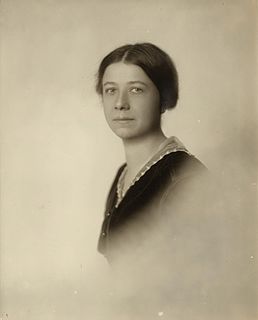A Quote by Mary Ritter Beard
The volumes which record the history of the human race are filled with the deeds and the words of great men ... [but] The Twentieth Century Woman ... questions the completeness of the story.
Related Quotes
The greatest achievements in the science of this [twentieth] century are themselves the sources of more puzzlement than human beings have ever experienced. Indeed, it is likely that the twentieth century will be looked back at as the time when science provided the first close glimpse of the profundity of human ignorance. We have not reached solutions; we have only begun to discover how to ask questions.
The recently ended twentieth century was characterized by a level of human rights violations unparalleled in all of human history. In his book Death by Government, Rudolph Rummel estimates some 170 million government-caused deaths in the twentieth century. The historical evidence appears to indicate that, rather than protecting life, liberty, and the pursuit of happiness of their citizens, governments must be considered the greatest threat to human security.
Film is more than the twentieth-century art. It's another part of the twentieth-century mind. It's the world seen from inside. We've come to a certain point in the history of film. If a thing can be filmed, the film is implied in the thing itself. This is where we are. The twentieth century is on film. You have to ask yourself if there's anything about us more important than the fact that we're constantly on film, constantly watching ourselves.
When I die, I want to be remembered as a woman who lived in the twentieth century and who dared to be a catalyst of change. I don't want to be remembered as the first black woman who went to Congress. And I don't even want to be remembered as the first woman who happened to be black to make a bid for the Presidency I want to be remembered as a woman who fought for change in the twentieth century. That's what I want.








































